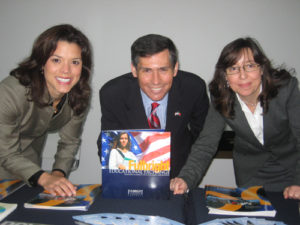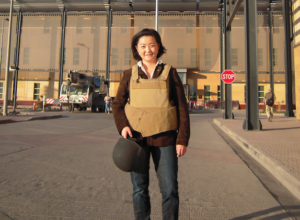‘Any American, Any Problem, Any Time’
 Gavin Sundwall stood beside the grave, a Bible in hand, and read John 11:25-26: “I am the resurrection and the life…” Two taxi drivers, who had become the deceased woman’s chauffeurs during the last years of her life, shared memories of her and shed tears. They sprinkled the woman’s ashes over the graves of her two husbands, which were just a few feet apart.
Gavin Sundwall stood beside the grave, a Bible in hand, and read John 11:25-26: “I am the resurrection and the life…” Two taxi drivers, who had become the deceased woman’s chauffeurs during the last years of her life, shared memories of her and shed tears. They sprinkled the woman’s ashes over the graves of her two husbands, which were just a few feet apart.
The impromptu ceremony at the Corozal American Cemetery outside Panama City in the summer of 1998 was over. Sundwall, a first-tour Foreign Service officer, had never met the elderly American woman when she was alive, even though she had lived in Panama for decades. He saw her for the first time when he went to the morgue to identify her body after she had died from natural causes. That was no unusual duty for him as a consular officer, but the funeral he organized was certainly not in his job description.
“I informed her family back in the U.S. of her death, but they didn’t want to come down and have anything to do with her burial, although they sent money,” Sundwall recalled. “They told us that her last wishes had been to be cremated and have her ashes sprinkled over the graves of her two husbands. All her friends were elderly and didn’t want to come. So who else would have done it if I hadn’t?”
That same year marked the first time Sundwall was in a Panamanian jail. Two Satanist killers sat across from him. Fortunately for him, he was just visiting the criminals, who were U.S. citizens, to make sure they were being treated humanely, and to relay any messages to their families back home…
>> READ THE FULL STORY ON THE HUFFINGTON POST

 Yuri Kim never thought this would happen. It was a cold February day in 2008, and she was sitting in North Korea’s largest concert hall, listening to a performance by the New York Philharmonic — not far from where she was born in South Korea.
Yuri Kim never thought this would happen. It was a cold February day in 2008, and she was sitting in North Korea’s largest concert hall, listening to a performance by the New York Philharmonic — not far from where she was born in South Korea.






